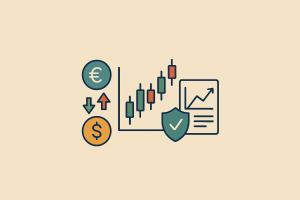Introduction
The foreign exchange (forex) market is the largest and most liquid financial market in the world, with a daily trading volume exceeding $7.5 trillion. While many traders struggle to consistently profit, a select few have mastered the art of forex trading and amassed enormous wealth. Who are these elite forex traders, and what are their secrets to success?
In this article, we will explore the richest forex traders in the world, their trading strategies, and the key principles that have helped them dominate the markets. Whether you are a beginner or an experienced trader, learning from these market legends can provide valuable insights into achieving consistent profitability in forex trading.
Who Are The Richest Forex Traders In The World?
The forex market has created numerous self-made millionaires and billionaires. Some of the most successful forex traders include:
George Soros – The Man Who Broke the Bank of England
One of the most famous forex traders in history, George Soros, is best known for his legendary short position against the British pound in 1992. Soros recognized that the British government was struggling to maintain the exchange rate of the pound and placed a $10 billion bet against it. When the UK was forced to exit the European Exchange Rate Mechanism (ERM), Soros made a profit of over $1 billion in a single day.
Success Secrets
- Mastering macroeconomic analysis
- Identifying weaknesses in financial policies
- Using high-risk, high-reward trading strategies
Paul Tudor Jones – The King of Technical Analysis
Paul Tudor Jones is a billionaire forex and commodities trader who gained fame for predicting the 1987 stock market crash. He used a combination of technical analysis and market psychology to anticipate price movements, making millions from short positions.
Success Secrets
- Combining technical and fundamental analysis
- Managing risk effectively
- Maintaining emotional discipline in volatile markets
Stanley Druckenmiller – The Master of Risk Management
A close associate of George Soros, Stanley Druckenmiller played a key role in the famous 1992 pound shorting strategy. His trading philosophy emphasizes risk management and making large bets when the odds are in his favor.
Success Secrets
- Balancing risk and reward
- Being patient and waiting for high-probability trades
- Learning from market cycles
Bill Lipschutz – The Sultan of Currencies
Bill Lipschutz transformed a $12,000 inheritance into millions by trading forex while studying at Cornell University. He later became the head of Salomon Brothers’ forex trading division, where he generated hundreds of millions in profits.
Success Secrets
- Understanding market sentiment
- Managing risk with tight stop-losses
- Adapting to changing market conditions
Andrew Krieger – The Trader Who Took Down the Kiwi
Andrew Krieger made history in 1987 by shorting the New Zealand dollar (NZD) with extraordinary leverage. His aggressive position reportedly exceeded the total money supply of New Zealand, leading to massive profits for his employer, Bankers Trust.
Success Secrets
- Using leverage wisely
- Spotting overvalued currencies
- Implementing aggressive trading strategies
What Are Their Secrets To Success?
While these traders have unique approaches, they share several key principles that have contributed to their success.
Mastering Risk Management
One of the most critical aspects of forex trading is risk management. Successful traders use strategies such as:
- Setting a stop-loss to limit losses
- Risking only a small percentage of their capital per trade
- Diversifying their portfolio to minimize exposure
Developing a Solid Trading Strategy
Successful forex traders do not rely on luck. They develop well-defined trading strategies, including:
- Trend-following strategies (riding the momentum of price movements)
- Mean reversion strategies (capitalizing on price fluctuations)
- Breakout strategies (entering trades after key levels are breached)
Using Fundamental and Technical Analysis
Fundamental analysis involves analyzing economic indicators such as:
- Interest rates
- Inflation rates
- Geopolitical events
Technical analysis focuses on
- Chart patterns (e.g., head and shoulders, double tops)
- Indicators (e.g., Moving Averages, RSI, MACD)
- Support and resistance levels
Controlling Trading Psychology
Emotional discipline is crucial in forex trading. Successful traders:
- Avoid fear and greed
- Stick to their trading plans
- Remain patient and confident in their strategies
Adapting to Market Conditions
Forex markets are dynamic, and the best traders adjust their strategies based on:
- Market trends (bullish vs. bearish conditions)
- Economic reports (GDP growth, employment data)
- Central bank policies (Federal Reserve, ECB decisions)
How You Can Apply These Strategies?
Now that we have explored the strategies of the world’s richest forex traders, it’s time to see how you can apply their principles to your own trading journey. Whether you are a beginner or an experienced trader, implementing these strategies can improve your chances of long-term success.
Focus on Risk Management
Risk management is the foundation of successful forex trading. Even the best traders experience losses, but they know how to manage them effectively.
Steps to Improve Risk Management
Never risk more than 1-2% of your trading capital on a single trade.
Use stop-loss orders to automatically exit losing trades.
Avoid excessive leverage; it magnifies both profits and losses.
Diversify your trades to reduce overall risk.
Develop a Winning Trading Strategy
You need a well-defined strategy to navigate the forex markets successfully. Here are some proven strategies used by elite traders:
Trend-Following Strategy
Traders like Paul Tudor Jones use trend-following strategies to ride market momentum.
Look for currencies that are consistently moving in one direction and enter trades in line with the trend.
Use indicators like the Moving Average and MACD to confirm trends.
Breakout Trading Strategy
Used by Andrew Krieger when he shorted the New Zealand dollar.
Look for key resistance and support levels—when prices break these levels, a strong movement often follows.
Use high volume confirmation to avoid false breakouts.
Mean Reversion Strategy
Based on the belief that prices always return to their average levels.
Identify overbought or oversold conditions using the Relative Strength Index (RSI).
Trade when prices move too far from their historical average.
Use Both Fundamental and Technical Analysis
The richest forex traders combine fundamental and technical analysis to make well-informed decisions.
Fundamental Analysis
Focuses on economic data, interest rates, and geopolitical events.
Example: George Soros analyzed the UK’s weak economy before shorting the British pound in 1992.
Technical Analysis
Focuses on historical price movements and chart patterns.
Example: Paul Tudor Jones used technical indicators to predict the 1987 stock market crash.
Pro Tip: Use a combination of both analyses to increase your probability of success.
Master Trading Psychology
One of the biggest challenges for traders is controlling their emotions.
Key Psychological Tips for Traders:
Stay disciplined: Follow your strategy without letting emotions take over.
Accept losses as part of the game: Even the best traders lose money sometimes.
Avoid revenge trading: Trying to recover losses quickly often leads to even more losses.
Maintain a growth mindset: Keep learning and improving.
Common Mistakes To Avoid In Forex Trading
Even the richest traders made mistakes in their early careers. Here are some common pitfalls to avoid:
- Overtrading – Placing too many trades can lead to unnecessary losses.
- Ignoring Risk Management – Not using stop-losses or risking too much per trade.
- Trading Based on Emotions – Fear and greed can destroy your account balance.
- Lack of a Clear Strategy – Trading without a plan leads to inconsistent results.
- Using Too Much Leverage – High leverage can lead to bigger losses if the trade goes against you.
Conclusion
While forex trading is challenging, it is possible to achieve financial success by learning from the best. The richest forex traders did not become wealthy overnight—they built their fortune through discipline, risk management, and continuous learning. By applying these principles, you can improve your trading skills and work towards becoming one of the top forex traders in the world!



